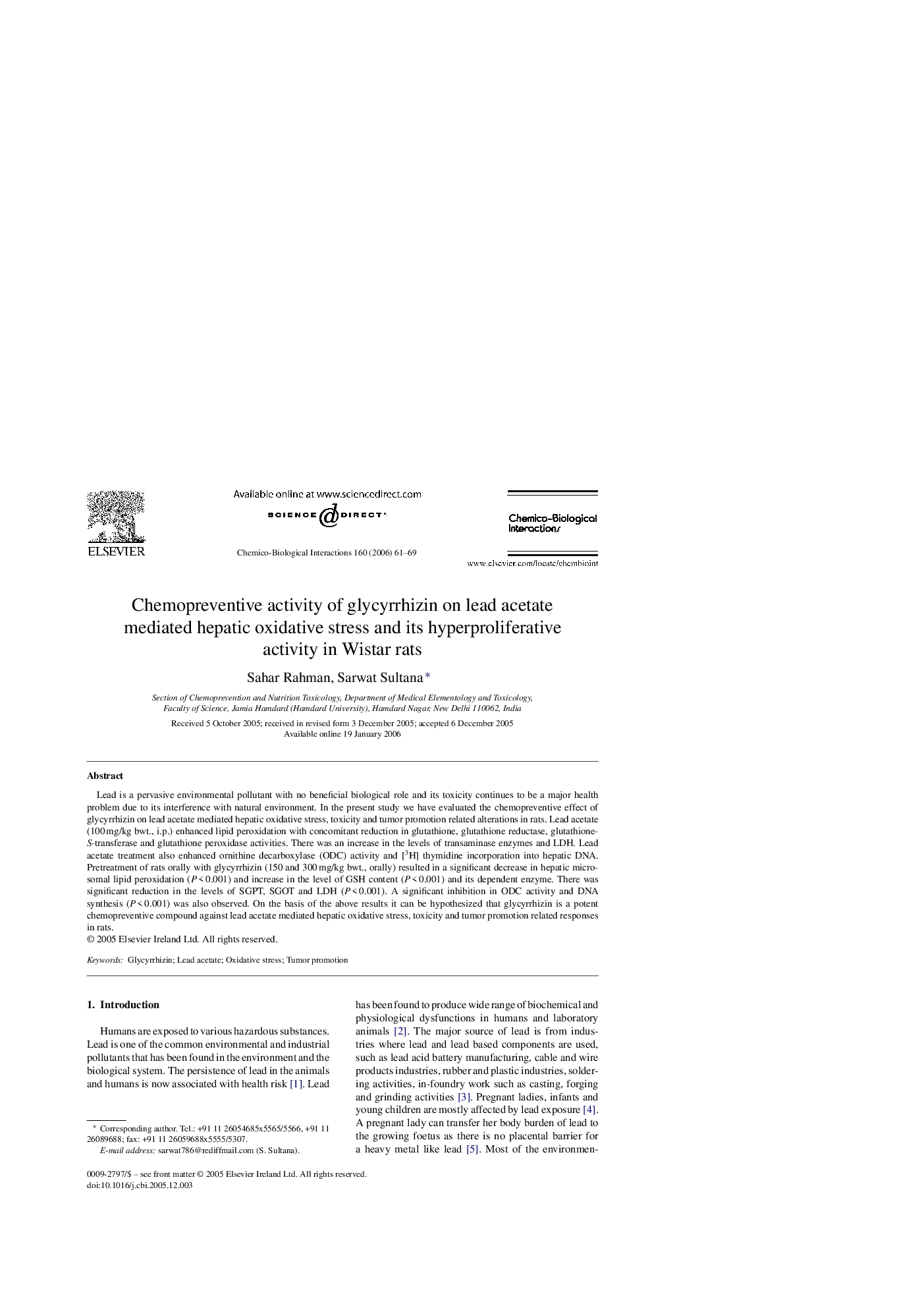| Article ID | Journal | Published Year | Pages | File Type |
|---|---|---|---|---|
| 2582371 | Chemico-Biological Interactions | 2006 | 9 Pages |
Lead is a pervasive environmental pollutant with no beneficial biological role and its toxicity continues to be a major health problem due to its interference with natural environment. In the present study we have evaluated the chemopreventive effect of glycyrrhizin on lead acetate mediated hepatic oxidative stress, toxicity and tumor promotion related alterations in rats. Lead acetate (100 mg/kg bwt., i.p.) enhanced lipid peroxidation with concomitant reduction in glutathione, glutathione reductase, glutathione-S-transferase and glutathione peroxidase activities. There was an increase in the levels of transaminase enzymes and LDH. Lead acetate treatment also enhanced ornithine decarboxylase (ODC) activity and [3H] thymidine incorporation into hepatic DNA. Pretreatment of rats orally with glycyrrhizin (150 and 300 mg/kg bwt., orally) resulted in a significant decrease in hepatic microsomal lipid peroxidation (P < 0.001) and increase in the level of GSH content (P < 0.001) and its dependent enzyme. There was significant reduction in the levels of SGPT, SGOT and LDH (P < 0.001). A significant inhibition in ODC activity and DNA synthesis (P < 0.001) was also observed. On the basis of the above results it can be hypothesized that glycyrrhizin is a potent chemopreventive compound against lead acetate mediated hepatic oxidative stress, toxicity and tumor promotion related responses in rats.
